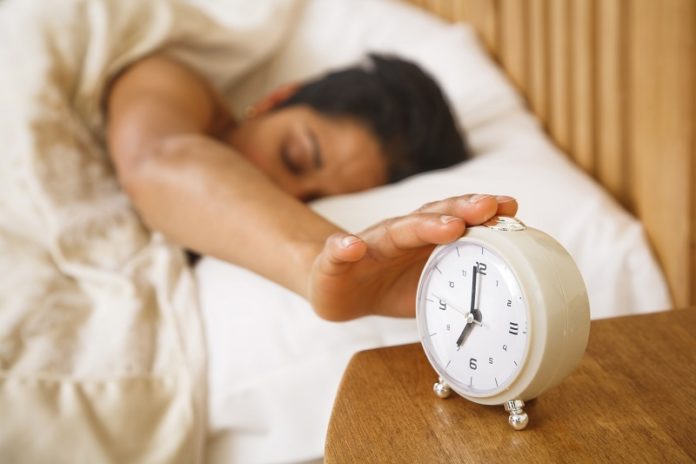Some of the previously conducted studies note that loss of sleep incurred during the week cannot be compensated by sleeping for longer time over the weekend. A latest study conducted by American experts explains that sleeping for long hours over the weekend may actually be adverse for the health and trigger heart issues and weight gain.
Experts called this phenomenon ‘social jet lag’ described as a situation when one goes to bed and wakes up much later on weekends than during the week.
Social jetlag is defined as a syndrome that occurs when our body’s biological clock and our actual sleep schedules don’t match up. The term “social jetlag” was created by Dr. Till Roenneberg of the University of Munich’s Institute of Medical Psychology, in Germany.
Social jet lag,which occurs when one goes to bed and wakes up much later on weekends than during the week ,is the feeling of being very tired when you return to work after a holiday , especially because of changes to your sleeping pattern.
The new research ,led by senior author Michael A. Grandner, Ph.D., director of the Sleep and Health Research Program at the University of Arizona in Tucson ,examined data from 984 adults aged between 22 and 60 years.
The data for the study were collected as part of the Sleep and Healthy Activity, Diet, Environment, and Socialization study, which is a community-based survey of more than 1,000 adults.
Dr. Grandner and colleagues evaluated social jet lag using the Sleep Timing Questionnaire, and they calculated it by subtracting the weekday sleep midpoint from the weekend one.
The study revealed associations between social jet lag and worse mood, sleepiness, and fatigue, as well as poorer overall health.
Results show that social jet lag, which occurs when you go to bed and wake up later on weekends than during the week, is associated with poorer health, worse mood, and increased sleepiness and fatigue. These effects are independent of sleep duration and insomnia symptoms, which are related to both social jet lag and health.
More specifically, with each hour of social jet lag, the researchers found an 11.1 percent increase in the likelihood of developing heart disease.
Furthermore, every hour of social jet lag was associated with a 22.1 and 28.3 percent increase in the likelihood of having just “good” or “poor” health, respectively, compared with “excellent” health.
Meanwhile sleeping for longer time was found to have no health benefit if you have gone to bed at a later time than usual, according to the University of Arizona in Tucson.
‘These results indicate that sleep regularity, beyond sleep duration alone, plays a significant role in our health,’ said lead author Sierra B. Forbush, a research assistant at the university’s Sleep and Health Research Program.
For the study, the team analysed survey responses from 984 adults between the age of 22 and 60 years.Social jet lag was assessed using the sleep timing questionnaire and was calculated by subtracting weekday from weekend sleep midpoint.
Overall health was self-reported using a standardised scale, and survey questions also assessed sleep duration, insomnia, cardiovascular disease, fatigue, and sleepiness.Social jet lag has also been linked to an increased risk of being overweight or obese.
Sleep deprivation may affect the brain activity, trigger memory problems, induce moodiness, anxiety and depression; it may also lead to lack of concentration, lethargy. Prolonged sleep deprivation is also tied to risk of heart disease, diabetes, weakened immune system, hypertension among others.
The American Academy of Sleep Medicine recommends that adults should sleep seven or more hours per night on a regular basis to promote optimal health. In addition to adequate duration, healthy sleep requires good quality, appropriate timing and regularity.


























